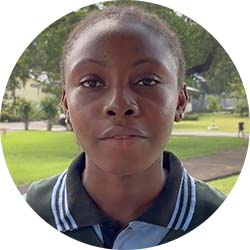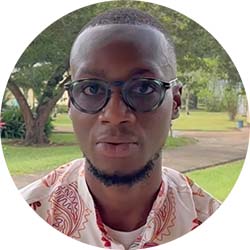Sponsoring dreams
The Saint Benedict Menni Health Center in Monrovia has been a point of reference for the community in which it is located, the Pipeline Road area in the eastern suburb of Paynesville.
This is an area where many families live in need, and for this reason, since the launch of the We Are Like You project, we have wanted not only to help women with mental illness, but also to have a positive impact on the environment around our center.
14 years of continuous civil war destroyed the educational system, and led to the fact that in 2013, none of the 25,000 young people who attempted to enter any of the few universities in the country reached the minimum required grades.
Despite that primary and secondary school are free in the country, the quality of public education, its facilities and teaching staff is very poor, so it is private, fee-paying schools the only ones that can guarantee access to a higher quality education. Many families are unable to pay their costs, or need their sons and daughters to work to help support them, and this leads to a chronic wheel of poverty: children without education, jobs that provide just enough to survive, families who cannot afford to pay for their studies…
In terms of higher education, there are two public universities and half a dozen private institutions in Liberia, and their degrees are limited, so that some disciplines can only be taken at a single university. In 2018, President George Weah decreed public universities free of charge when he realized that only half of the enrolled student body could afford the cost of fees and attend classes, thereby closing off their access to skilled jobs.
For this reason, in collaboration with the Benito Menni Foundation, We Are Like You developed a sponsorship program called The Scholarship Program, which seeks to offer children and young people with limited resources the possibility of accessing school and university education.
Volunteers and benefactors of We Are Like You were the first to commit to the monthly payment of €25, which allows us to guarantee the schooling of a child and the payment of associated costs, such as uniforms, school supplies or medical treatment. Higher contributions allow young people to access university studies and build a future in a country with a GDP per capita of only $600 per year.
The dreams of…
Archie
Wants to be an electrician
Kebbeh
Wants to be a doctor
Anthony
Wants to be a computer technician
Ansu
He is a laboratory technician and studies a higher degree.




